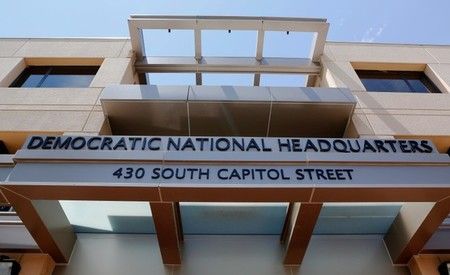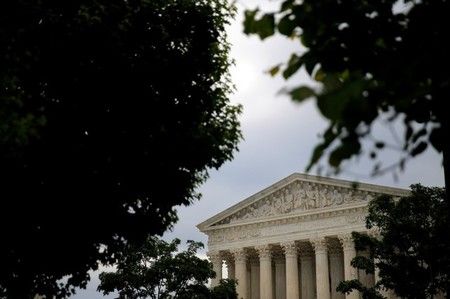Advertisement
Democratic Party email leak points to Russia: cyber experts, U.S. officials

By Dustin Volz and Mark Hosenball
WASHINGTON (Reuters) – Cyber security experts and U.S. officials said on Monday there was evidence that Russia engineered the release of sensitive Democratic Party emails in order to influence the U.S. presidential election.
The FBI said it was investigating a cyber intrusion at the Democratic National Committee (DNC), which has led to discord as the party’s convention in Philadelphia opens on Monday to nominate former U.S. secretary of state Hillary Clinton as its candidate.
Although the hacking of the DNC was known to officials and cyber security experts a month ago, the timing of the release of the contents of communications within the party is what is causing concern for U.S. authorities.
A U.S. official involved in the investigation said that the classified information collected on the hack so far “indicated beyond a reasonable doubt that it originated in Russia.”
The official, speaking on condition of anonymity, said that the timing of the release of emails “has all the hallmarks of a classic intelligence operation intended to damage a perceived adversary.”
The official said, however, that it may be impossible to prove definitively that Russian President Vladimir Putin’s government directed the attack.
The emails, released by activist group WikiLeaks at the weekend, appeared to show favoritism within the DNC for Clinton over U.S. Senator Bernie Sanders of Vermont, who ran a close race for the nomination for the Nov. 8 election. The committee is supposed to be neutral and the disclosure forced chairwoman Debbie Wasserman Schultz, a congresswoman from Florida, to resign.
The U.S. House of Representatives intelligence committee has been briefed and will seek information on any potential connection to Russia or any other state, said Representative Adam Schiff, the senior Democrat on the panel.
“That foreign actors may be trying to influence our election – let alone a powerful adversary like Russia – should concern all Americans of any party.” Schiff said in a statement.
On Sunday, Clinton campaign manager Robby Mook told CNN that the campaign had been told by “experts” that the emails were released by suspected Russian hackers to help Republican Party nominee Donald Trump.
The businessman’s campaign dismissed the allegation as absurd.
Trump has often praised Putin, calling him a “strong leader.” Trump is a critic of NATO and last week he told The New York Times that he might not back countries in the alliance if they were attacked by Russia, unless he was sure they had made sufficient contributions to the group.
Russia has long been considered among the most elite U.S. adversaries in cyberspace, though its actions are generally viewed as efforts at covert intelligence gathering.
“Usually, the Russians are not ham-handed,” said Jim Lewis, a cyber security expert at the Center for Strategic and International Studies in Washington. He said Russia was believed to have hacked Democratic and Republican campaigns in 2008, but that it did not leak material.
“It would be a bold move to try and shape the election, but we can’t rule it out,” Lewis said.
CrowdStrike, a cyber firm that helped clean up the breach, said last month it had identified two hacking groups that infiltrated the DNC and that both were believed to be working on behalf of two competing arms of the Russian government.
Its findings were later supported by similar conclusions reached by FireEye’s <FEYE.O> Mandiant unit and Fidelis, two other U.S.-based cyber companies.
Experts said that forensic analysis of the breach also links the same hackers to attacks at the White House, the State Department, the German Bundestag and private companies.
The Federal Bureau of Investigation declined to say when its probe of the hack began. “A compromise of this nature is something we take very seriously, and the FBI will continue to investigate and hold accountable those who pose a threat in cyberspace,” it said in a statement.
WikiLeaks released more than 19,000 DNC emails on Saturday. On Twitter it rejected as speculation claims made that Russia was the source of the cache. The group also said that there would be more leaks related to the U.S. election.
White House spokesman Josh Earnest said he could not speak to the veracity of private sector conclusions pointing to Russia as the culprit in the DNC hack, but that he was confident the FBI would thoroughly investigate the matter.
(Reporting by Dustin Volz and Mark Hosenball; additional reporting by John Walcott and Joseph Menn; Editing by Kevin Drawbaugh and Grant McCool)









